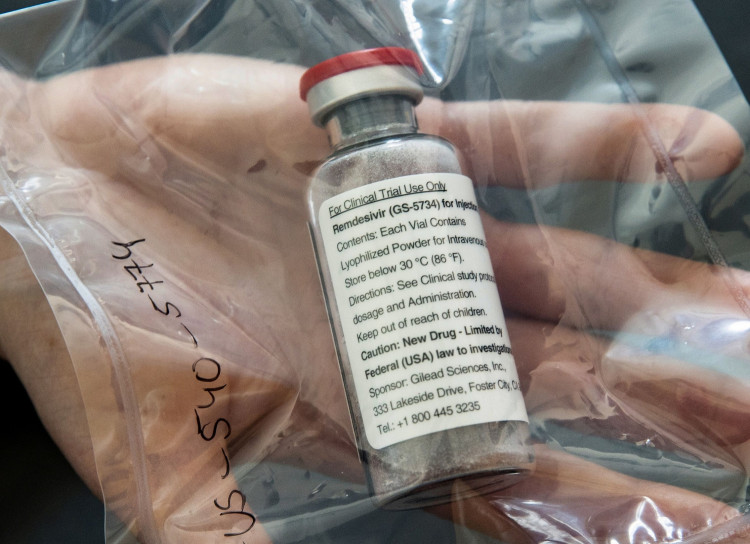The experimental antiviral drug remdesivir is now the first -- and only -- medically certified treatment for moderate to severe cases of COVID-19.
On Friday, the U.S. Food and Drug Administration (FDA) issued an emergency-use authorization (EUA) for the drug, which is still in human clinical trials. It limited its authorization to the emergency use of remdesivir in hospitalized adults and children with suspected or laboratory-confirmed COVID-19 and severe disease. The latter includes low blood oxygen levels, the need for oxygen therapy or the need for a ventilator or other intensive breathing support.
Gilead Sciences, Inc., the maker of remdesivir, immediately donated 1.5 million individual doses of the antiviral, which equates to more than 140,000 treatment courses, at no cost to treat patients. Remdesivir is administered intravenously.
The FDA said the benefits of remdesivir outweigh its risks in patients. Remdesivir shows promise but is far from a coronavirus cure.
FDA chief scientist Denise Hinton also cautioned there is "no adequate, approved, and available alternative to the emergency use of remdesivir for the treatment of COVID-19." The FDA will control the use of remdesivir to ensure the use of the drug with the "terms and conditions" of the authorization.
The EUA will facilitate broader use of remdesivir to treat hospitalized patients with severe COVID-19 disease. It will also allow access to remdesivir at additional hospitals across the U.S.
"This EUA opens the way for us to provide emergency use of remdesivir to more patients with severe symptoms of COVID-19," said Daniel O'Day, Chairman and Chief Executive Officer of Gilead Sciences.
"We will continue to work with partners across the globe to increase our supply of remdesivir while advancing our ongoing clinical trials to supplement our understanding of the drug's profile. We are working to meet the needs of patients, their families and healthcare workers around the world with the greatest sense of urgency and responsibility."
Gilead said the EUA is based on available data from two global clinical trials: one by the National Institute for Allergy and Infectious Disease (NIAID), which is a placebo-controlled Phase 3 study in patients with moderate to severe symptoms of COVID-19, including those critically ill. The other is Gilead's global Phase 3 study evaluating 5-day and 10-day dosing durations of remdesivir in patients with severe disease. Multiple additional clinical trials are ongoing to generate more data on the safety and efficacy of remdesivir as a treatment for COVID-19.
On Wednesday, NIAID director Dr. Anthony Fauci hailed the results of the remdesivir clinical trial conducted by NIAID, calling it "quite good news." He believes remdesivir "will be the standard of care" for COVID-19.
Preliminary results from the NIAID trial show patients given remdesivir recovered 31% faster than those given a placebo. These results were praised by Dr. Fauci as "highly significant."
"This is really quite important," said Dr. Fauci at the White House. He compared this result to a moment in 1986 "when we were struggling for drugs for HIV and we had nothing."
He said remdesivir shortened the period patients experienced symptoms and slightly reduced the mortality rate. He pointed out the mortality rate trended lower for those that took the remdesivir -- 8% compared to 11% -- for those that didn't. Dr. Fauci said the trend isn't yet statistically significant and the results will undergo further analysis.
"What it has proven is that a drug can block this virus," noted Dr. Fauci. He called this finding "very optimistic."
The NIAID phase 3 trial involved more than 1,090 people. The results haven't been peer-reviewed but was submitted to a journal for review, said Dr. Fauci, who had read the results.





